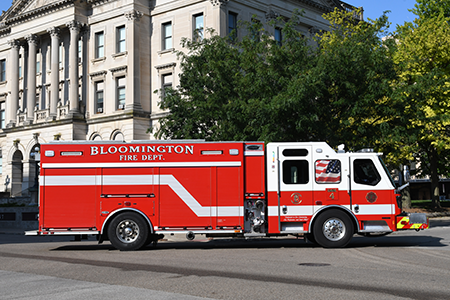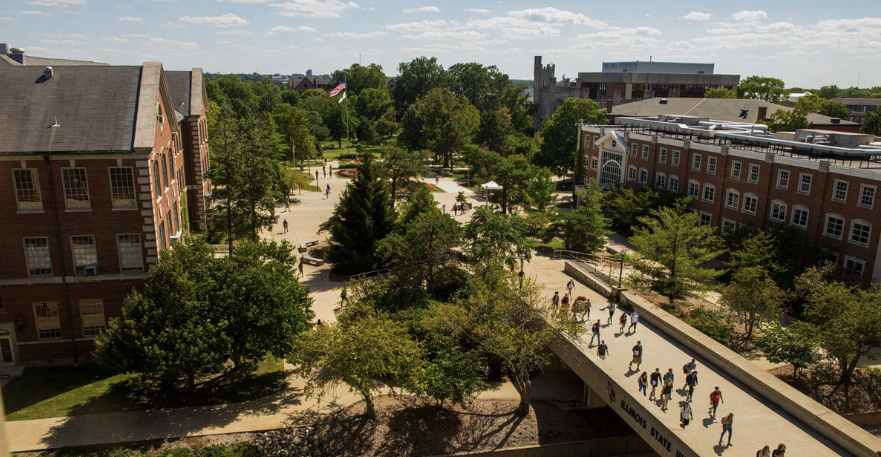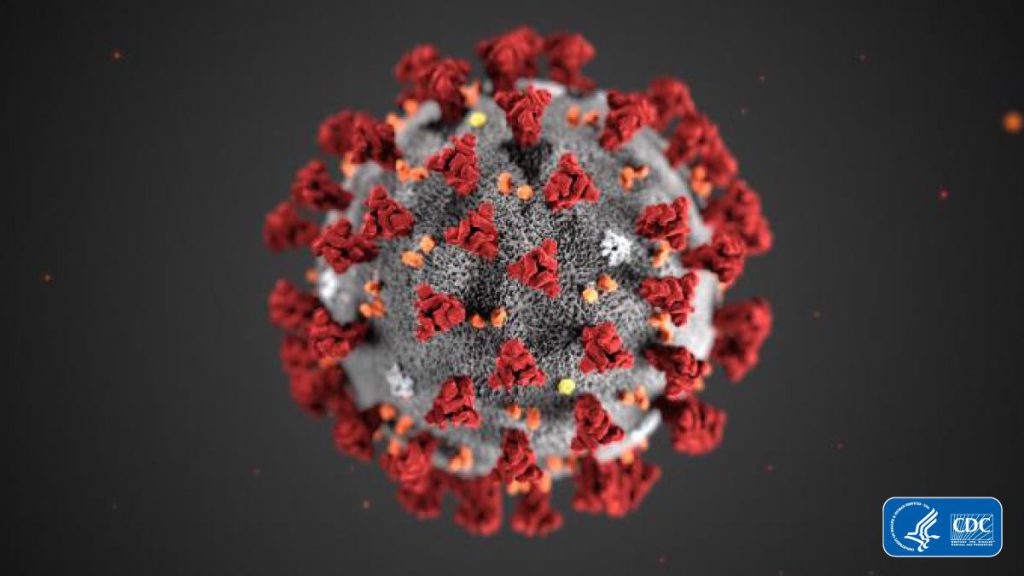Update on ISU’s Testing, Housing and Employment
Written by WZND Newsroom on September 1, 2020
Photo courtesy to ISU Facebook page
NORMAL, Ill.- Illinois State University is working with the University of Illinois to become a partner in their saliva-based test and Vice President for Student Affairs Levester Johnson said there are no plans at this time to close the residence halls. Students are also subjected to housing contact cancellations. Employment at the university is encourages to go remote.
Testing
John Baur, professor of chemistry and COVID-19 testing coordinator, is leading ISU’s testing efforts.
According to Baur, in order to implement the saliva-based testing on the Illinois State campus, there are a number of steps that must be completed.
The first step was achieved when the University of Illinois received FDA approval in recent weeks. A second major step is building a CLIA certified lab, which will be in the Science Laboratory Building.
Baur added the goal is ultimately to test students, faculty and staff at least once per week. “A unique aspect of the partnership with the University of Illinois Shield Illinois program is the ability to extend testing opportunities to other educational institutions, local nursing homes and major employers in the area,” said Baur.
The cost of setting up the lab is estimated at $1 million and will take at least 10 weeks.
Along with symptomatic testing at Student Health Services, asymptomatic testing for students is available at two on-campus testing sites that are currently located in the Brown Ballroom in the Bone Student Center and the former fire station on Adelaide Street. Testing capacity does not allow for testing of faculty and staff at this time.
Illinois public universities record and report their COVID data differently, and at this point, ISU is doing more widespread testing than any state university in Illinois with the exception of the University of Illinois.
“As our surveillance testing ramps up, we expect that expanded testing will result in a lower positivity rate,” said Baur.
Baur also added that the University leadership is monitoring the situation closely.
Housing
Currently, more than 80% of those testing positive are living off campus and of those students living in on-campus housing, only 2% are currently in on-campus isolation, according to Vice President for Student Affairs Levester Johnson. “The residence halls have implemented a variety of measures to further support the health and wellness of our on-campus residents.”
There are no overnight or off-campus guests allowed in the residence halls, high-touch areas are cleaned frequently, face covering procedures are monitored, there are no triple or quad occupancy rooms, residential fitness centers are closed, common space is set up for physical distancing and staff are on-hand to serve as a resource to students and monitor compliance.
Students found in violation of quarantine and isolation procedures are subject to the student code of conduct and ultimately at risk for housing contract cancellation.
De-densification efforts resulted in nearly a 40% reduction in on-campus housing occupancy for the Fall 2020 term.
Currently, there are fewer than 4,000 students living in on-campus housing, which is a reduction of over 2,300 students compared to Fall 2019 term.
In an effort to provide the most flexibility possible for students and their families, housing and meal plan contracts may be cancelled at any time during the fall term without financial penalty. Student can cancel meal plans in their housing and dining portals.
University Employment
ISU President Larry Dietz reiterated the University’s commitment to remaining flexible. “I encourage as many faculty and staff as possible to work remotely if their position allows,” said Dietz. Temporary work from home agreements should be submitted to Human Resources and at this time, can be extended through December 31, 2020.
“Over the last several months, faculty and staff have put in an incredible effort to teach and care for our students,” said Dietz. “I will remember these days with great gratitude for the tireless hours our faculty and staff have put in to continue to serve our students.”





